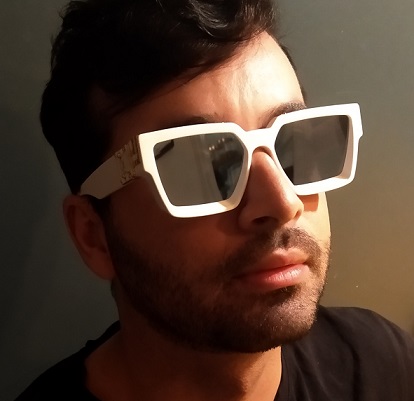 The Brazilian specialist in digital content and digital marketing Tiago Ribeiro, also known as Tito, is a global reference in social media. He has monitored the digital transformation of several companies in Latin America and Europe. Due to the coronavirus pandemic, he had his employment contract canceled and in his free time he created the RENAISSANCE PROJECT, an enterprise to help companies in the process of digital transformation. It provides cost-free strategic consultancy ranging from designing new internal processes and introducing technological platforms to creating a new culture.
The Brazilian specialist in digital content and digital marketing Tiago Ribeiro, also known as Tito, is a global reference in social media. He has monitored the digital transformation of several companies in Latin America and Europe. Due to the coronavirus pandemic, he had his employment contract canceled and in his free time he created the RENAISSANCE PROJECT, an enterprise to help companies in the process of digital transformation. It provides cost-free strategic consultancy ranging from designing new internal processes and introducing technological platforms to creating a new culture.
In 2015, Tito started his international career. In this period abroad, he followed the digital transformation process of several companies of various segments. Before returning to Brazil, he worked as innovation director at Biederman McCann in Paraguay. He also worked as digital director of WPP Group companies, including Y&R in Peru, and as a teacher at the Miami Ad School. While in Europe, he worked for the Hispanic and global market by developing projects in Istanbul, Lisbon, Madrid, Amsterdam, and London, among other cities. Then he returned to Latin America – first in Montevideo, Uruguay, working on projects for all Latin America and the Caribbean; then in Mexico City, Mexico, and finally in Asunción, Paraguay. His portfolio includes projects created for brands like McDonald’s, Coca-Cola, AB InBev (Anheuser-Busch InBev), and Diesel.
With this large experience in the digital market, he comments on the expansion of ecommerce, where he anticipates the need to reevaluate the marketing strategies:
“We have had to face a giant transformation that is only accelerating due to the coronavirus pandemic, which has ‘forced’ millions of people worldwide to buy online, especially in places where social isolation was established to reduce the virus spread. Unlike the United States and Europe, developing countries in Latin America and part of Africa and Asia have seen the e-commerce grow by 56.8% and the delivery orders increase by 40% in the first months of 2020 according to studies. The general annual trend of June (2019 vs. 2020) shows that the global searches for online shopping grew by 50%, the global searches for food delivery services increased by 180% on average, and the annual average growth of traffic on electronic commerce sites grew by ca. 30% according to SEMrush.
The COVID-19 pandemic has not only accelerated some tendencies in digital marketing but also brought some unexpected changes. Nowadays, traditional companies cannot afford to remain offline while their competitors obtain significant online market share. To create a well-designed, functional and user-friendly e-commerce platform is the easiest task; the hard one is to ensure that it is optimized for traffic, turn visitors into costumers, create brand value in addition to sales, and engage customers in a given purpose.
Retailers and big brands are facing these new challenges and an ever-growing competition on a global scale. The companies need to rethink all their communication approach urgently. Not only do they need to show themselves to the customer, but also bond with them, which is a huge challenge in this ever-changing world.
New marketing strategies need to be created to make bonds. Advertising is disruptive and not welcome in digital space. Much has been discussed about content and entertainment, and even more about how to combine them strategically in order to turn users into costumers. The challenge is huge in this new world: both world and customers have changed, and the marketing strategies certainly need to follow suit.
Change will take place when the company finds the balance between non-disruptive brand value campaigns and direct sale-oriented, traffic-increasing actions. I believe a proficuous path is to have the marketing department funds split into two main fronts, with specific campaigns for each of them, that is, focusing on the costumer’s empathy and high-performance sale results. However, this balance path is far from being accomplished in most companies due to their past habits, which also need to go through a complete makeover.
Currently, publicity is measurable in real time as one can have easy access to data about all the sale results. However, few companies invest in qualified professionals with the expertise to transform these data into business opportunities. Besides, brand value can also be followed in real time through the analysis of digital space conversations once the brand is mature enough to create relevant content that engages users in conversations instead of highly disruptive Stories and YouTube videos. The analysis of data related to these conversations provide important insights that can transform the entire company ecosystem. Yet, the brand needs to be ready for this, and the companies need personnel in strategic roles to lead this work effectively”, the Brazilian specialist concludes.


